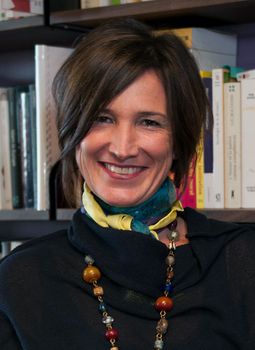Giving international students the UdeM experience despite the pandemic
- Forum
07/07/2020
- Martine Letarte
International students have special needs in these unusual times. The university is doing its utmost to meet those needs and to find ways for students to have the UdeM experience, even if it's online.
When the COVID-19 pandemic hit last winter, there were more than 5,500 international students at UdeM, some for short stays, others for the duration of their studies. Solutions had to be found for all of the university’s students during the crisis, but international students obviously had special needs. The Office of the Vice-Rector of Community and International Partnerships and the Office of the Vice-Rector of Student and Academic Affairs worked together to address them. A case-by-case approach was taken to meet each individual's needs.
"Naturally, students who had settled in Montral for several years of university studies and those who spoke French as their mother tongue were more inclined to stay despite COVID than those who have difficulty communicating in French or who had come for only a few months," said Valérie Amiraux, Vice-Rector, Community and International Partnerships.
"The need for support therefore varied widely from one student to another, depending on each one's circumstances and personality. People needed reassurance, especially those who had arrived recently and didn't yet have a network here."
Foreign students may generally be seen as young people who are here to pursue their education and enjoy the nightlife. But they're actually living a kind of migrant existence, said Amiraux.
"Being an international student involves constraints that weigh particularly heavily in times of crisis. Some couldn't return home and found themselves taking online courses in cramped lodgings with a weak internet connection. They were also very isolated once access to the campus was cut off."
To make information readily accessible, the university posted an FAQ that covers, among other things, the issues experienced by international students. "Of course there were frustrations and disappointments, but we tried to make sure the session ended well for all students, and we did our best to reduce their stress levels,” said Amiraux.
Predicting the unpredictable
In the fall, most courses will be online at UdeM. Depending on their course selection, some international students may decide to stay in their home country, while others may prefer to come to Montreal if they have the required documents and are prepared to follow the rules for entering Canada during the pandemic. "For everyone who will be in the country, it will still be important to have the Certificat d'acceptation du Québec (CAQ) and to apply for a study permit," Amiraux noted.
Students who will be coming to Montreal will have to consider some practical issues, such as submitting to a mandatory quarantine and deciding what they will do if they fall sick. "Unfortunately, we can't meet all those needs for international students, but we try to give them a good idea of what they should think about," said Amiraux.
The university's student associations have also been very active in supporting international students, and Facebook groups have been circulating information and providing aid and comfort.
Giving students the UdeM experience
The great challenge will be providing the UdeM experience to students taking online courses, whether they are here or abroad. "We have no concerns about the quality of teaching, supervision and pedagogical support, but the human contact will be missing,” said Amiraux, adding that the university is working on ways to welcome students back in the fall and make it possible for them to interact.
"The human element is essential to success," she said. "We will find solutions to help students in similar situations build ties to the UdeM community. We will have to be inventive. A number of projects are in the works, including campus visits and a virtual orientation program starting August 24, student twinning, and virtual communities organized around themes of all kinds."
Helping students realize their life plan
UdeM is also working with the other universities in the Bureau de coopération interuniversitaire (BCI) to help international students who want to settle permanently in Quebec. In mid-June, a letter was sent to Simon Jolin-Barrette, who was Quebec's Minister of Immigration, Francization and Integration, about changes coming to the Programme de l’expérience québécoise (PEQ).
Among other things, the BCI urged that a grandfather clause that the government promised last fall be included in the new regulations to allow current students and those entering a program in the fall to take advantage of the PEQ in its current form.
The BCI letter also called for part-time work and paid student internships during the 36 months preceding the submission of a PEQ application to be recognized as experience. The BCI suggested a target of 20 business days for the processing of PEQ applications.
"International students come here to pursue their studies but many also come to start a new life in Quebec,” Amiraux noted. “We will continue working with the other universities to help students realize their dreams in Quebec, for the benefit of all of society.”











